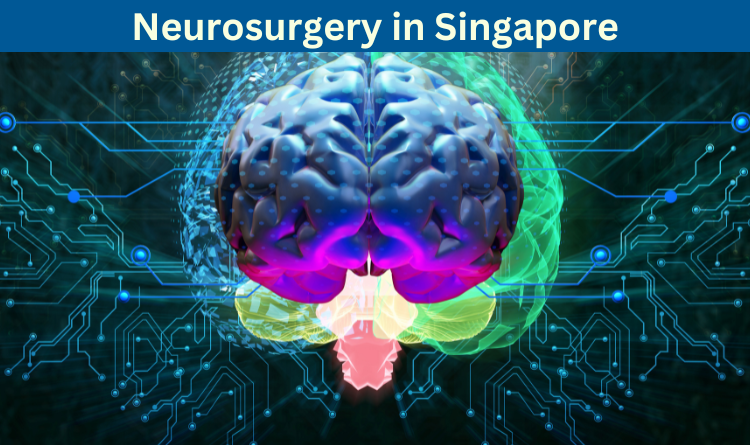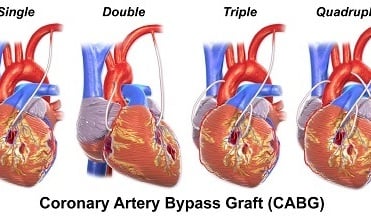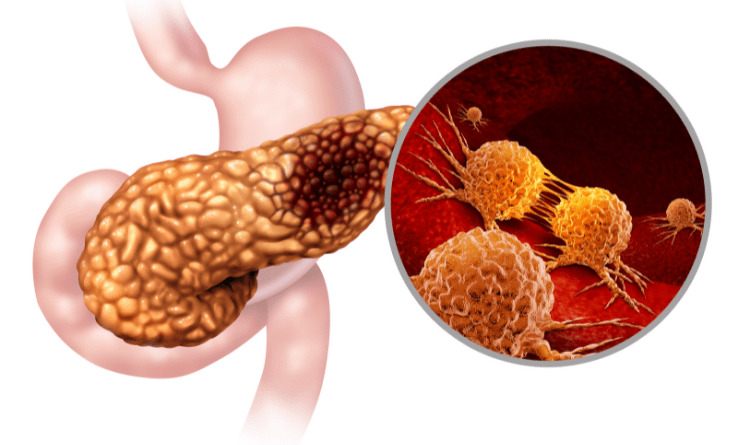An estimated 22.6 million patients are presumed to experience neurological conditions or injuries each year, with 13.8 million needing surgery and necessitating the skills of a neurosurgeon.
Not only this, More than 5 million people with neurosurgical problems may be treated by undergoing therapeutic, surgical intervention every year. People in Southeast Asia and Africa, where there are significantly fewer neurosurgeons than there are neurosurgical diseases, are in danger.
For millions of people with neurological disorders, it is imperative to increase access to crucial neurosurgical care in low- and middle-income nations by expanding the neurosurgical workforce as part of surgical system strengthening. Neurosurgery in Singapore is the best option for you in such a situation. Keep reading for a better understanding.
What is Neurosurgery?
Surgery on the nervous system's components, such as the brain, spinal cord, extracranial cerebrovascular system, and peripheral nerves like those in the hands and feet, is known as neurosurgery. Treatment with neurosurgery may be appropriate for:
Brain cancers that are primary or metastatic
Spinal cancers that are primary or metastatic
Spinal column tumours or peripheral nerve tumours
Neurological issues brought on by additional tumours or treatments
Additionally, back and neck discomfort, epilepsy, stroke, sciatica, herniated discs, pinched nerves, and chronic pain may be treated by neurosurgeons. Angiograms, MRIs, and ultrasounds are just a few diagnostic procedures that neurosurgeons utilize to determine the precise nature of neurological illnesses, diseases, or accidents. The findings of these examinations aid an effective treatment plan.
A neurosurgeon may collaborate with other medical professionals from various specialities, such as pathologists, psychologists, occupational therapists, radiation oncologists, and medical oncologists.
When Do You See a Neurosurgeon?
Neurosurgeons, like neurologists, treat a wide variety of diseases. People who go to neurosurgeons are often those who are recommended to do so by neurologists because neurosurgeons perform surgery on the entire nervous system and related organs of the body. As we mentioned earlier, the leading role of a neurosurgeon involves surgical procedures. Here are some cases they can work on:
Spinal
Endovascular repair
Remove disk
Craniotomy
Lumbar puncture
Aneurysm repair
Since neurosurgery is one of the most advanced and challenging fields in modern medicine, it often requires the collaboration of a team of specialists from various fields, such as plastic surgeons, orthopaedic surgeons, manual therapists, interventional radiologists, and others.
The medical speciality known as neurosurgery focuses on diagnosing and treating patients with injuries to or illnesses/disorders of the brain, spinal cord, spinal column, and peripheral nerves in all regions of the body.
What Types of Operations are Performed by Neurosurgeons?
Depending on the area of your nervous system — or supporting tissues and structures — that is afflicted, neurosurgeons can conduct a variety of surgeries and procedures.
Various brain operations include:
Removal of blood clots.
Repairing an aneurysm
Cancer removal
Stoppage of brain bleeding (haemorrhage).
Injury recovery
Shunt placement.
Peripheral nerve surgery techniques include:
Wrist pain relief.
Ulnar nerve liberation
Stimulation of the vagus nerve.
Various spine surgery procedures include:
Stereotactic radiosurgery of the spine.
Diskectomy.
Laminectomy.
Vertebral fusion
Kyphoplasty and vertebroplasty.
Stabilization and restoration of the spine.
Brain Surgery - A Most Common Type of Neurosurgery
Brain surgery treats issues with the brain and its supporting components. Subdural hematoma therapy may require brain surgery to drain the blood and lower intracranial pressure. The problem's origin, severity, and location all affect the surgery's outcome.
What Dangers Come with Brain Surgery?
Surgery on the brain carries many dangers. An unpleasant reaction to the drug, breathing difficulties, bleeding, blood clots, and infection are common hazards associated with anaesthesia.
Other possible concerns could be either short or long-term and could consist of any of the following:
Speech, memory, coordination, balance, and visual issues
Muscle sluggishness
The seizures
Coma.
Stroke
A skull or brain infection.
Brain enlargement
What Should You Anticipate from Brain Surgery?
Your unique situation and condition will significantly influence the specifics of your surgical procedure. However, you will typically need to fast for 8 to 12 hours before surgery. Your anesthesiologist will describe the anaesthesia for your specific surgery and how it will affect you before your surgical procedure.
An intravenous (IV) drip will be placed in your body to deliver water and nourishment throughout the procedure and administer anaesthesia. Additionally, a tube will be put down your throat to assist with breathing, and a catheter will be put into your bladder to collect your pee.
To prevent movement, your head will be restrained in a neck brace in the operating room. Before the surgery, your head will be washed with antibacterial soap, and a tiny patch of hair will be shaved.
What Occurs Following Your Brain Surgery?
You must relax after your procedure. Your surgical team will watch you closely as your brain heals. You may experience brain swelling during your recuperation and need to stay in the hospital. Dizziness, weakness, poor balance, lack of coordination, personality changes, seizures, speech difficulties, and disorientation are a few symptoms that this swelling may produce.
These signs and symptoms should get better as the swelling goes down. Be aware that your rehabilitation will take some time and that every situation is unique. Before being released from the hospital, your neurosurgeon will give you comprehensive instructions on managing your repair.
What Happens in Neurosurgery?
The neural system of your body, which includes your brain, spinal cord, spinal column, and all of your nerves that branch out from your spinal cord, is assessed, diagnosed, and treated by a neurosurgeon.
Although neurosurgeons are skilled in performing intricate procedures on the spine and brain, they frequently advise nonsurgical or conservative treatment first.
For instance, your neurosurgeon could recommend anti-inflammatory medications and physical therapy if you have persistent back discomfort. If these remedies are ineffective for your discomfort, your neurosurgeon may advise surgery.
Neurosurgery in Singapore
The most cutting-edge neurosurgical care is available in Singapore, including life-saving, technically challenging surgeries that assist adults and children with severe and complex diseases.
Each year, the eminent neurosurgeons in Singapore do more than 1000's operations in almost every speciality Neurosurgery Hospital in Singapore. With cutting-edge techniques, including awake brain surgery, robotics, intraoperative MRI, computer-assisted brain surgery, stereotactic radiosurgery, and deep brain stimulation, they are at the forefront of treating disorders of the brain, spine, and nervous system.
Best Neurology And Neurosurgery Hospitals in Singapore
Farrer Park Hospital, Singapore
Farrer Park Hospital, a private tertiary hospital in Singapore that opened its doors on March 16, 2016, offers a novel approach to medical care by involving patients as partners in the quest for good health and by giving them a conducive environment, or "oasis," to achieve these aims.
Singapore General Hospital, Singapore
Since its founding in 1821, Singapore General Hospital (SGH) has come a long way to establish itself as the country's first and biggest hospital that performs dual roles as a tertiary referral hospital and an academic health centre.
National University Health System, Singapore
The National University Health System (NUHS) in Singapore is an organization that brings together tertiary, acute, and community hospitals, national speciality centres, polyclinics, a medical centre, and academic health sciences institutions to provide education, research, training, and clinical care to the community's healthcare needs.
Best Surgeons for Neurosurgery in Singapore
Dr. Timothy Lee - A renowned neurosurgeon with nearly 40 years of clinical and surgical experience, Dr. Timothy Lee specializes in diagnosing and treating spine issues, including lower back and neck pain, stroke, and pediatric malignancies.
Dr. Chumpon Chantharakulpongsa - Dr. Chumpon is a renowned Neurosurgeon having 35 years of rich experience in his field. He has subspecialty interests in complex skull base surgery, neuro-oncology, neurotrauma, and general neurosurgery.
Assoc. Prof. Chai Josiah - Assoc. Prof. Chai Josiah has over 28 years of training and experience. His contributions to the disciplines of Carpal Tunnel Syndrome, Motor Neuron Disease, Myasthenia Gravis, and Neuromuscular Diseases have been recognized.
How to Get a Medical Visa to Singapore?
You need a visa to visit Singapore if India issued your travel document. Please note, however, that those holding diplomatic, official, and service passports are exempt from the requirement for permission.
Fees: Online payments must be made using a MasterCard credit or debit card and a nonrefundable processing fee of S$30.
Processing Time: In general, excluding the day of filing, visa processing takes three working days. However, applying for at least a month is advisable before travelling there.
Neurosurgery Cost in Singapore
Cost related to Neurosurgery in Singapore:
Treatment Name | Cost Starts From |
Spinal Fusion Surgery | USD 25,000 |
Brain Tumor Surgery | USD 42,000 |
Gamma Knife for AVM or Brain Tumor | USD 55,000 |
Pituitary Tumor Treatment | USD 25,000 |
Hydrocephalus Treatment | USD 40,000 |
Cranioplasty | USD 13,000 |
Gliomas Treatment | USD 42,000 |
Conclusion
It might be overwhelming to receive a diagnosis. However, a neurosurgeon can assist you in managing and treating your condition if it is a neurological system disorder like Parkinson's disease or chronic pain. If you are planning to travel to Singapore for neurosurgery, it is recommended to arrange everything beforehand so that you can have a hassle-free medical trip.
FAQs
Is neurosurgery safe?
Neurosurgery is a safe procedure that offers superior surgical outcomes and decreased infection rates. Several different neurological treatments are effective in avoiding and managing seizures.
Is life normal after the brain surgery?
After brain surgery, some patients fully recover, but it can take some time. Some other people experience short-term difficulties or challenges. Depending on the region of the brain where the tumour existed, you can experience issues.
How long can neurosurgery take?
While some procedures can be completed in 3–4 hours, more difficult ones can take up to 10 hours. Additionally, neurosurgeons may need to respond to crises on the weekends and after regular business hours. But in the end, the benefits and the happiness are unmatched.




